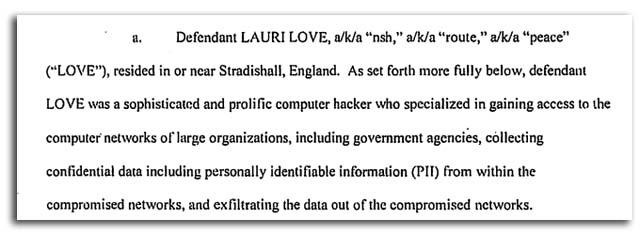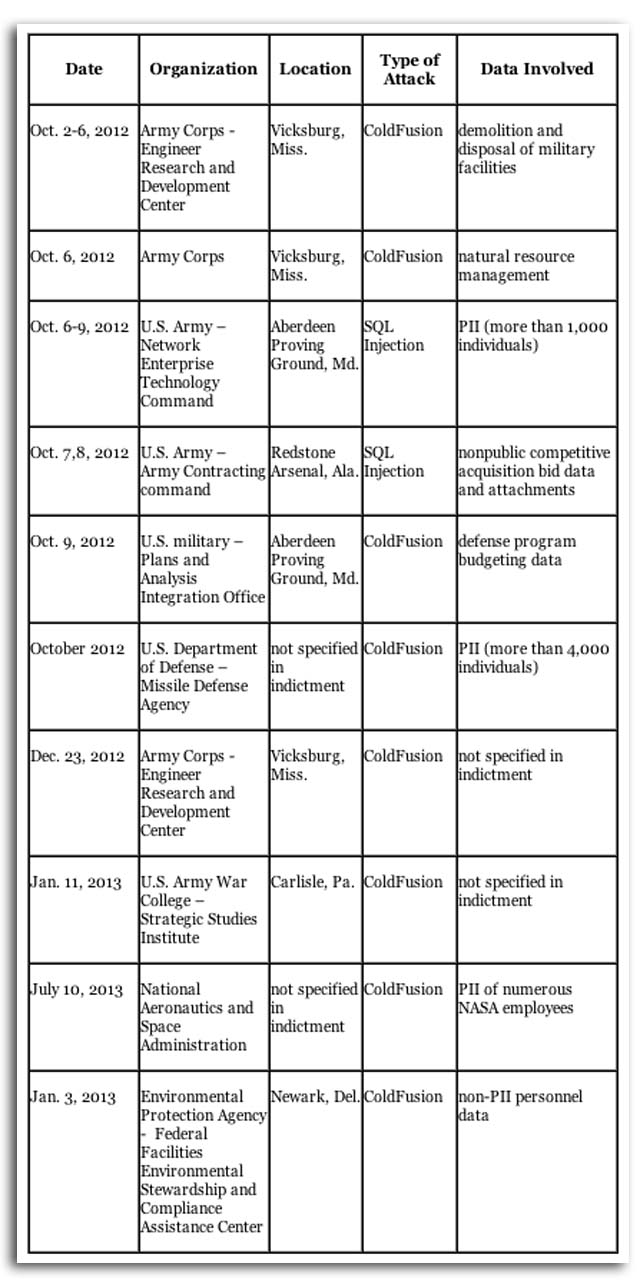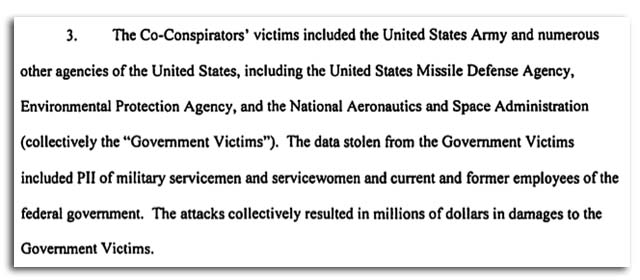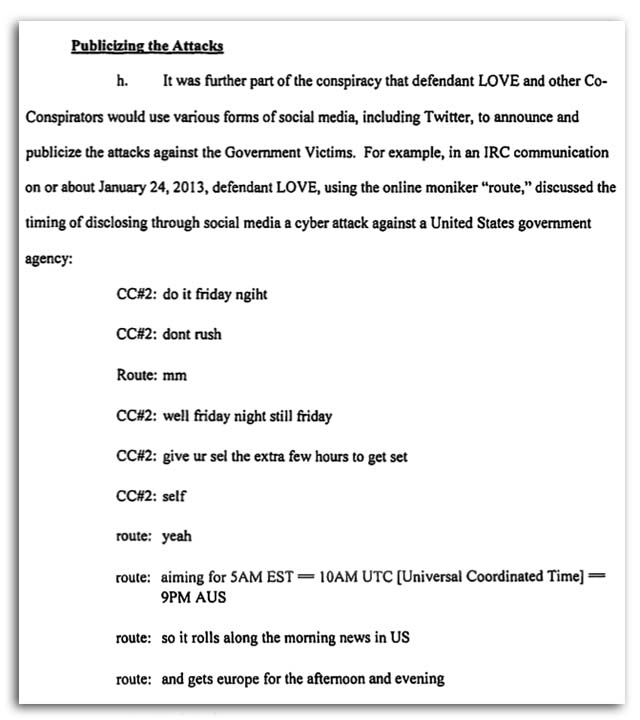
Federal authorities have announced the arrest of Lauri Love, a 28-year-old British hacker who is charged with breaching U.S. military networks.

Here’s what we know about this breaking story.
1. Love Allegedly Accessed Massive Amounts of Data on U.S. Military Personnel
According to a U.S. Attorney’s Office press release, Love breached “thousands of computer systems in the United States and elsewhere – including the computer networks of federal agencies – to steal massive quantities of confidential data.”
He’s charged with “accessing a U.S. department or agency computer without authorization and one count of conspiring to do the same.”
Here’s the list of “intrusions,” via the press release:

2. He Was Arrested on Friday in England
Love, 28, was arrested Friday at his residence, reports NorthJersey.com.
He was busted “by authorities including the U.K.’s National Crime Agency in a separate investigation,” reports Reuters.
3. He Was Indicted in New Jersey
Here’s the full indictment, released today:
Love’s indictment was filed in Newark (New Jersey) federal court and announced today by Paul Fishman, U.S. attorney for New Jersey. The charges result from a joint investigation by the Army’s computer crimes unit and the FBI out of New Jersey.
Fishman stated:
Lauri Love and conspirators hacked into thousands of networks, including many belonging to the United States military and other government agencies. As part of their alleged scheme, they stole military data and personal identifying information belonging to servicemen and women. Such conduct endangers the security of our country and is an affront to those who serve.
4. Love & His Co-Conspirators Allegedly Breached NASA and Missile Defense

Love and his alleged co-conspirators — two Australians and one Swede, all of whom are anonymous in the indictment — allegedly breached systems of the EPA, NASA, Army and the U.S. Missile Defense Agency. The time period in question is October 2012 to October 2013.
The indictment alleges their actions resulted in millions of dollars in losses, though the document does not specify where the losses came from.
5. The Hackers Planned to Publicize the Attacks on Twitter
From the indictment:
